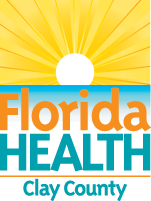It's a New Day in Public Health.
The Florida Department of Health works to protect, promote, and improve the health of all people in Florida through integrated state, county, and community efforts.
National Infant Immunization Week (NIIW) is April 18–24, 2015
March 26, 2015
We are pleased to remind our immunization partners about the upcoming observance of National Infant Immunization Week (NIIW).
Since 1994, NIIW has been an annual observance to highlight the importance of protecting infants from vaccine-preventable diseases and to celebrate the achievements of immunization programs in promoting healthy communities throughout the United States. This year, NIIW is scheduled for April 18-24, 2015.
During the NIIW week in April, hundreds of communities across the United States will join in to celebrate the critical role vaccination plays in protecting our children, communities, and public health. Immunization is a shared responsibility. Families, healthcare professionals, and public health officials must work together to help protect the entire community.
It's easy to think of these as diseases of the past. But the truth is they still exist today. Unvaccinated children in the United States can—and do—still get some of these diseases. One example of the seriousness of vaccine-preventable diseases is the most recent measles outbreaks resulting in an increase in the number of measles cases. In 2014, 644 people in the U.S. were reported as having measles. This is the largest number of cases in the U.S. since measles was eliminated in 2000. In the past three months, January 1 to March 13, 2015, 176 people from 17 states and the District of Columbia were reported to have measles.
- Through immunization, we can now protect infants and children from 14 vaccine-preventable diseases before age two.
- Vaccines are among the most successful and cost-effective public health tools available for preventing disease and death. They not only help protect vaccinated individuals, but also help protect entire communities by preventing and reducing the spread of infectious diseases. Among children born during 1994-2013, vaccination will prevent an estimated 322 million illnesses, 21 million hospitalizations, and 732,000 deaths over the course of their lifetimes.
Children rely on adults to keep them safe and healthy. Those adults may be parents/guardians who keep a record of their child’s vaccinations and ask at each doctor appointment whether their child is up-to-date on immunizations. The adults may also be doctors, nurses, physician assistants, and other healthcare professionals who share scientifically-accurate, up-to-date information about vaccines with parents.
Additional Information, NIIW promotional and educational materials, as well as activities and event ideas can be found on the CDC resource site: cdc.gov/vaccines/events/niiw/index.html. You can continue to show your support for infant immunizations and NIIW by encouraging your community to join in.





Connect with DOH